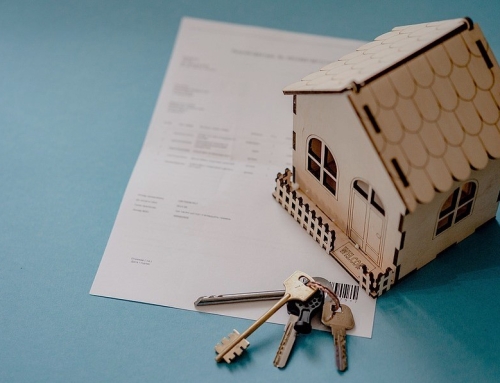10 Ways to Boost Your Credit Score Before Applying for a Home Loan
You’ve been saving up to buy a house for the family, but your credit score is too low, and you have to improve it to qualify for a better loan with a lower rate. Here are 10 things loan originators say can raise that score.
Know Your Credit Score
Before you can improve it, you need to know what it is. So first off, get your credit report free from places like AnnualCreditReport.com. Check it over for mistakes and other errors and be sure to dispute them. That can boost your score immediately.
Timely Bill Paying
Pay Bills on Time: Face it. You probably have a low score because you’re not paying attention to paying bills on time. Improving your credit score is not like a crash diet; it’s more like changing your lifestyle. Your payment history is a huge part of your credit score and even one late payment can hurt, so pay them on time. Set autopay reminders or, better yet, get your bills on auto pay.
Reduce Credit Balances
Your credit usage, how much of your available credit you’re using, greatly affects your score. Work to get your balances low under 30% of your limit on each card no more.
Keep Old Credit Cards
Even if you’re not using it, don’t close all those cards as the length of credit history matters. That shows a longer credit history and reduces overall credit utilization.
No New Cards
Your score can dip every time you apply for credit, so don’t do that – particularly right before you apply for a loan.
A Variety Helps
A combination of credit types like consumer cards, personal loans, or auto loans can benefit your score. But don’t take out new loans just to improve your mix.
What to Pay Off First
Get rid of the high-balance and high-interest loans first, even if that requires paying just the minimum on others. That also has the benefit of lowering your overall balance and reducing the carrying costs of your debt, which helps your FICO score, which improves your chances of getting a mortgage to buy real estate.
Become an Authorized User
With their permission of course, become an authorized user on a family member’s card who has good credit. Their good credit can reflect on you. Know, though, that their bad habits can hurt your score took, as yours can hurt theirs. So, there is a risk to relationships if you don’t behave in your spending.
You Can Negotiate Debts
If your debts are old or even in collections, call up the holder of the debt and offer to settle for a percentage of the amount owed. Do not expect them to embrace the idea, but they do it all the time. Getting 25 cents on the dollar would be better for them than nothing. Radio financial host Dave Ramsey recommends that you make an offer and stick with it, calling back every once in a while to see if they change their mind. Many will. BE SURE that you get them to agree IN WRITING that they will report the debt as paid. And NEVER give them your bank account information or they’ll drain it.
Get Professional Help
There are credit counselors who will set you up on a plan and sometimes negotiate with your creditors. Be careful here, though, as some just are trying to get you to take out a new loan at a high rate. There are free or low-cost services available (see below). Make sure you understand any and all fees before signing up. Below are a few:
National Foundation for Credit Counseling (NFCC):
The largest and longest-serving nonprofit financial counseling organization in the nation offers free or low-cost services, including credit counseling, debt management, budgeting assistance, and more.
Credit.org:
This nonprofit offers free credit counseling, educational resources, and debt management plans.
Consumer Credit Counseling Services (CCCS):
Local agencies that provide free or low-cost credit counseling, debt management plans, and financial education.
Local Non-Profit Agencies:
Many communities have local non-profit organizations that provide financial counseling and assistance for free. These might be associated with religious organizations, community centers, or government programs.
Military and Veteran Services:
Active-duty service members, veterans, and their families often have access to free financial counseling through military aid societies such as the Navy-Marine Corps Relief Society, Army Emergency Relief, and others.
Community Colleges, Universities or Cooperative Extension Offices:
Some have programs or partnerships with financial educators and counselors who offer free services.
Online Nonprofit Organizations:
Some organizations operate online and offer free counseling sessions, workshops, and webinars. They might also provide tools and resources to help you understand and manage your credit.
When looking for free credit counseling services, ensure that the agency is reputable. Check for accreditation by the NFCC, the Association of Independent Consumer Credit Counseling Agencies (AICCCA), or another recognized body. Also, read reviews and check with the Better Business Bureau or your state’s Attorney General’s office to ensure the organization is legitimate and has a good track record.
Remember that boosting your credit score means changing how you do your debt management business, and it’s a marathon, not a sprint. That said, if you approach the assignment with consistence and persistence, you’ll soon see the score climb, as well as your chances of getting that new family home you’ve been yearning for.
The post 10 Ways to Boost Your Credit Score Before Applying for a Home Loan appeared first on Arizona Realty Network.
Related Posts

Contact Form











